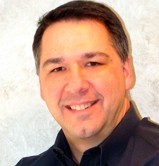
What Don't You Know?
By Bob Mason
I was talking with a couple of audience members before a speaking engagement recently. One of them said she didn't see herself as a good leader because there were parts of the organization she didn't clearly understand. Another person agreed and said that she too didn't know everything she thought she should. These two were displaying one of the traits of good leadership: admitting they didn't know everything.
Leader can be tempted to claim knowledge they really don't have, or to be coy and pretend they understand that which they don't. After all, leadership implies strength and a lack of knowledge implies weakness, right?
That's only half right. Leadership does imply a certain level of strength. Leaders must have the inner strength necessary to cope with the demands of the job. But, a lack of knowledge doesn't imply weakness. What is a weakness is failure to admit to a lack of knowledge.
From my first experience leading teams, it has always been very obvious to me that I'm never the smartest guy in the room. No matter how much I knew about any particular operation or organization, there was always something I didn't know. Even if I did know a lot about a particular issue, there was usually someone who knew more, or was aware of some angle that I had missed.
There are three types of knowledge you should be aware of as a leader.
1. That which you know.
2. That which you know you don't know.
3. That which you don't know you don't know.
The first is good, but probably not as big a category as you'd like. A good leader will maintain a level of personal humility relating to this category.
The second is where you need to rely on others to help you. You can't know everything and when you admit to those gaps in your knowledge, you're more likely to get help from your team. When you aren't willing to admit there are things you don't know, you're only fooling yourself. Your team will quickly determine your knowledge gaps. They'll respect you're admission of such gaps but they'll quickly take you for a fool if you try to hide them.
The third category is truly your blind spot. There will always be things you aren't aware of. Your team will either be aware of these things or will discover them as they go. If you have not established credibility in admitting what you don't know, they may not share this information with you, but rather let you discover it on your own; usually when it's too late to save yourself.
Do you know what you don't know? Your team probably does!
|
 Leadership - It's Worth The Effort
Leadership - It's Worth The Effort
By J Randy Hall
I spent a good part of a recent weekend crawling around under my house. I was finally getting around to running the speaker wire for a surround sound system that, candidly, I had been putting off for several years. Now for me that meant about 8 hours of lying on my back or crawling on my stomach in the dirt under my house as I drilled holes and dragged wires and a flashlight from one point to another. Parts of the process were pretty miserable. When I finally got all the components hooked up and working, though, nothing ever sounded so sweet. I don't know if the hard work and effort that I put in made the sound any better or not, but it sure seemed that way. It made me think about the hard work that my clients do to lead more effectively, change the culture, improve the way they coach, and how much satisfaction they enjoy when they start to see consistent behavior changes and improved employee engagement in their business. Leadership is hard. Changing the way we do things is hard. But that sometimes means that the results we achieve by doing that hard work are even more satisfying and fulfilling. And unlike my little project, there's no one you can call to lead your people more effectively; that is a do-it-yourself project. The results, however, are more meaningful than just about anything else you can achieve. Leading people to accomplish more than they thought they could and to improve their own capabilities to create more success for themselves is both valuable and sustainable. It dramatically changes the outcomes of your team or your business, and for them, it lasts a lifetime. It doesn't happen though, unless we first do the hard work of becoming the kind of leader who can influence people and help them change their perspective. Sometimes that's uncomfortable. It often takes longer than we thought, is harder than we thought, and presents challenges we never expected. And yet, when we get it right, the results are a lot like hearing beautiful music. People begin to work together in harmony, supporting each other, communicating clearly and achieving remarkable results. And it all started with us doing the hard work on ourselves to make it possible. Remember that leadership can happen anywhere- it may be at work, at home or in your community. Once you push yourself to develop the skills and the perspective of a true leader, everyone around you benefits. Many of the people that I work with talk as much about the results they have seen at home or with the kids as they do the changes that have happened on the job. As projects go, I was pretty happy with my new sound system. But the project of becoming a more effective leader can't be completed in a weekend. It will last for the rest of your life. The results will, too, for you and everyone you lead. Consider taking on the hard work involved and you will soon be enjoying results that are as fulfilling as anything else you can spend time on. Randy Hall is the founder and principal of 4th Gear Consulting. He is passionate about developing amazing leaders and thriving, principled organizations. He believes that nothing will have greater impact on our economy, our communities, our lives and our kids' lives. For more than a decade Randy has worked for and with organizations to help them realize more of their potential. His most recent roles in the corporate world were Senior Vice President of Learning and Leadership Development at Bank of America and Global Director of Learning and Development at Pfizer. Prior to moving into leadership development, he spent several years in sales and led his own high performing teams. You can contact Randy at randy.hall@4thgearconsulting.com or visit him on the web at http://4thgearconsulting.com You can also read more of Randy's articles at href="http://4thgearconsulting.com/blog">http://4thgearconsulting.com/blog
|
